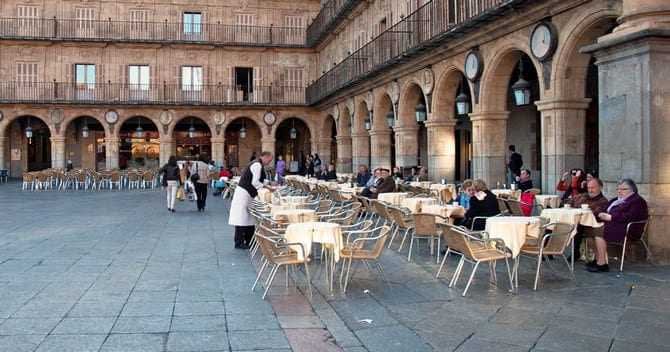
A new law banning refillable olive oil containers in Spain’s restaurants and bars will help increase the country’s olive oil exports, according to the Spanish government.
That’s because hotels and restaurant are often the only contact with olive oil that tourists have while in Spain, the Ministry of Agriculture, Food and Environment said. And If they encounter a quality product that is well presented it will act as a good introduction, “which will facilitate an increase in demand for exports.”
It was commenting on the new regulation, which from January 1, 2014 will require olive oil presented to consumers by the hospitality sector, including restaurants and catering services, to be in containers that are labeled and have an opening system that cannot be resealed after the first use.
And in the case of containers of a sufficient capacity to be made available to end users more than once, they must also have a protection system preventing their reuse once the original contents have been finished.
The regulation says members of the sector will have until the end of February to serve any stocks of olive oil and olive pomace oils they bought before January that don’t meet the new requirements.
In a preamble, it says that Spain, “the world leader in the production of olive oil has a strong commitment to all measures that contribute to strengthening the competitiveness of this important sector.”
It’s understood that fines for infringement will come under an earlier royal decree covering violations and penalties relating to consumer protection and food production. That regulation provides for fines of between about €600 and €15,000 in the case of serious offenses and of between €15,000 and €600,000 in very grave cases.
Spain’s olive oil sector has for some time been pushing for an end to the traditional — and refillable — aceiteras used in Spanish restaurants. Similar measures already apply in Portugal and Italy. Lobbying intensified in Spain after the European Commission suddenly backed away in May — amid considerable public outcry and media mockery — from its plan to apply such a ban throughout the European Union.
Spain’s Interprofesional del Aceite de Oliva Español, a non-profit promotional organization representing Spain’s olive oil sector, said consumers would be the main beneficiaries of the Spanish ban.
“For decades we have been denouncing the absurdity of continuing to use aceiteras in restaurants when consumers today are increasingly picky about what they eat,” it said.
But the Spanish Federation of Hospitality has warned that the move could increase costs, have an undesirable environmental impact, “because it will increase the use of throwaway packaging”, and increase food waste (particularly with single-use sachets), because “only rarely” would all the contents be used.






